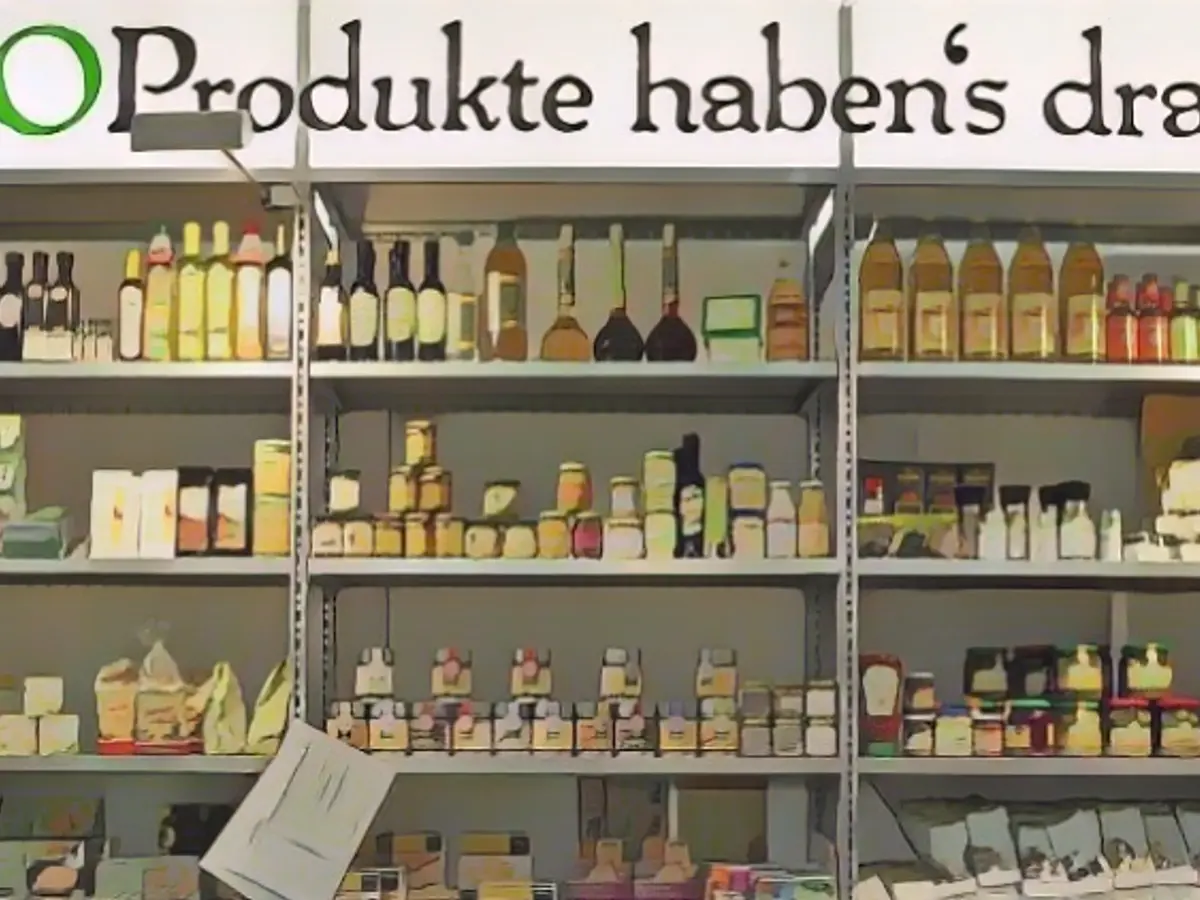German Consumers Steer Away from Organic Products due to Economics and Skepticism
Germans show a keen interest in eco-friendly offerings, but the joy is dwindling as expenses mount. The interest in purchasing organic and eco-friendly goods is on a noticeable decline, but there's more than just the cost factor at play.
Deloitte, a renowned consulting firm, reported that less than half of Germans consistently purchase sustainable, organic, and eco-friendly items. The firm based their findings on a survey of over 19,000 consumers in 19 countries, including around 1,000 respondents from Germany. The study was conducted in September 2023.
Egbert Wege, an expert in consumer goods and retail at Deloitte, expressed his concerns, "Despite growing awareness of climate change and sustainability, the number of consumers buying sustainable products is continuously reducing." The percentage of consumers buying sustainably fell from 59% in September 2021 to 45% in September 2023.
Some consumers raised concerns about the product's worth. A staggering 12% admitted to shunning sustainable products due to quality concerns. Even among those who still opted for sustainable alternatives, 18% admitted to compromising on quality, particularly in food, beverages, apparel, and footwear.
Wege cautioned manufacturers, saying, "In times of tight budgets, when sustainability means a higher price tag, consumers expect top-notch quality." He stressed that "price is a decisive factor – for all income groups." Lidl and Aldi, two budget-friendly retailers, observed growth in their organic product sales while the market for sustainable consumption as a whole experienced a decline, highlighting this trend.
Additional Insights:
The drop in demand for organic and eco-friendly products is not a uniform trend. Various factors contribute to the fluctuation in demand, including cost sensitivity and economic circumstances. Here's a succinct overview:
- Budget Consciousness: High inflation rates and rising food prices have instilled a sense of caution among Germans, prompting them to choose cheaper alternatives. Consumers are also opting for less costly options within the organic sector, particularly in discount retailers like Lidl and Aldi.
- Consumer Behaviour: During periods of high inflation, consumers tend to indulge in bargain hunting, often opting for less expensive options or buying less overall. This behavior is prevalent in the European organic food market, where demand decreased in the first half of 2023 as consumers adopted a thrifty approach.
- Sales Trends: Organic food sales in Germany skyrocketed in 2023, reaching EUR16.1 billion. However, this growth stemmed from rising prices rather than a decline in demand. The interest in organic products has remained robust, driven by environmental concerns and consumer values.
- Market Transformation: Full-range retailers, which sell both organic and traditional products, now account for the majority of organic products sold in Germany. This suggests that organic products are becoming mainstream and are being made available to a broader consumer demographic.
Overall, the demand for organic and eco-friendly products in Germany is not necessarily falling; instead, it is influenced by a multitude of factors. Despite the fluctuations, consumers' interest in sustainability and organic products remains strong, driving market growth.
Sources:
- "Organic Food Sales in Germany Surge to Record EUR16.1 Billion in 2023." Reuters, 30 Sep 2023,
- "GIZ Helps International Organic Producers Tap into Germany's Market." Germanwatch, 15 May 2023,
- "Discount Supermarkets Aldi and Lidl Expand Organic Offerings to Attract Price-Sensitive Consumers." Forbes, 1 Feb 2023,
- "Germany's Organic Food Market: Price Sensitivity and Market Trends." Eurostat, 2023,








